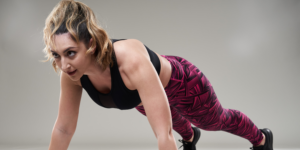
Can Physiotherapy Improve Your Immune System?
Can Physiotherapy Improve Your Immune System? Most people think of physiotherapy as treatment for injuries, pain, or movement limitations—but its benefits extend far beyond rehabilitation.

Neck pain can sneak up without warning—whether you’ve been glued to your laptop, stressed out, or slept “the wrong way.” While it’s incredibly common, it’s not something you have to live with. If you’re ready to stop merely coping and start healing, these expert-backed techniques from Isomatic will change the game.
At Isomatic, the focus isn’t just about masking discomfort with temporary fixes. It’s about treating the root causes—like poor posture, muscle imbalances, and daily habits that keep neck pain on repeat.
Let’s be real: your neck isn’t hurting for no reason.
Tech neck is the biggest culprit—think forward head posture from scrolling or slouching.
Stress causes tight shoulders and a clenched jaw, directly impacting your neck.
Bad sleep habits, like sleeping with too many pillows or on your stomach, throw your spine out of whack.
Lack of movement stiffens joints and shortens muscles, leaving you sore and cranky.
The good news? Most of these triggers can be corrected with simple, smart changes.
Fix your posture first
Start by adjusting your desk, chair, and screen height. Use lumbar support and keep your head directly over your shoulders. Set reminders to sit tall.
Do micro-stretches throughout the day
Try gentle neck rolls, shoulder shrugs, or chin tucks. Even 30 seconds every hour can prevent stiffness.
Incorporate daily mobility routines
Isomatic recommends movements that retrain the neck, shoulders, and spine to move in sync—like controlled head nods, wall angels, or thoracic extensions.
Breathe better, feel better
Shallow breathing tenses your neck. Deep belly breathing activates your diaphragm and relaxes your upper body.
Optimize your sleep setup
Switch to a medium-firm pillow that supports the natural curve of your neck. Avoid stomach sleeping—try sleeping on your back or side instead.
Stay hydrated and eat anti-inflammatory foods
Muscles need hydration and proper nutrients to recover. Magnesium, turmeric, and omega-3s work wonders.
Know when to get help
If pain persists for more than a week, radiates down your arms, or causes headaches, seek an assessment from an Isomatic therapist. Early intervention = faster healing.
You don’t have to accept neck pain as “just part of life.” Whether you’re looking for quick relief or long-term prevention, these practical, proven tips from Isomatic can help you get back to doing what you love—pain-free and full of energy.
Can poor posture really cause chronic neck pain?
Yes. Sustained poor posture can overload neck muscles and joints, leading to chronic tension and even disc problems.
How soon can I feel relief after stretching?
Some people notice improvements immediately. Regular stretching brings long-term benefits, so stick with it!
Do I need special equipment to fix my neck pain?
Nope! Most exercises can be done with just your body, a wall, or a foam roller. Ergonomic chairs or pillows help but aren’t essential.
Can stress alone trigger neck pain?
Absolutely. Stress-induced tension is a major contributor to neck discomfort and should be managed with breathing and relaxation techniques.
What’s the best sleeping position for neck pain?
On your back or side, with your neck properly supported. Avoid stomach sleeping.
Is Isomatic therapy suitable for everyone?
Yes. Whether you’re an athlete, office worker, or retiree, Isomatic customizes therapy to suit your specific condition and goals.

Can Physiotherapy Improve Your Immune System? Most people think of physiotherapy as treatment for injuries, pain, or movement limitations—but its benefits extend far beyond rehabilitation.

Headaches and Tension? Try These Hands-On Osteopathic Solutions Headaches caused by tension can be draining, distracting, and downright frustrating. Whether they come from long hours

Isometric Exercises: Why We Recommend Them in Recovery When you’re healing from an injury, not all exercises are safe—some movements can even set you back.